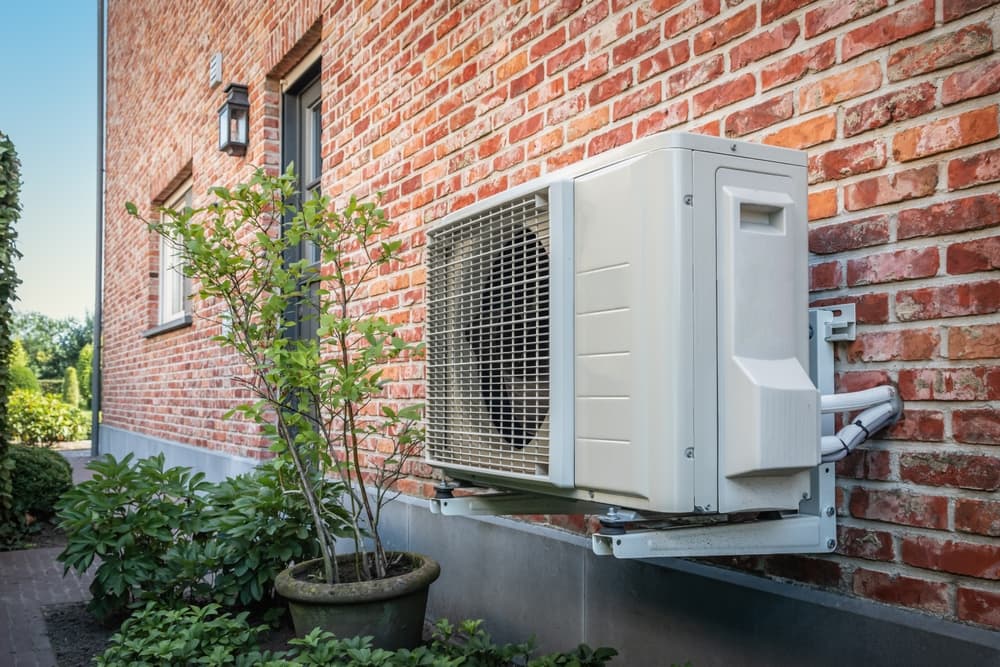January 20th, 2025
Heat pumps vs. traditional heating: Which is right for your home?
Written by: Gareth Whitehill
Heat Pumps
Cut your monthly energy costs with an expert heat pump installation. Get started today with a free, custom quote.
Installing a heat pump offers a range of long-term benefits for both homes and businesses. From cutting energy bills to reducing carbon emissions, heat pumps are one of the most efficient heating solutions available in the UK.
Yes, funding and finance options are available for heat pump installations to make them more affordable. You can choose to pay upfront, spread the cost through finance, or apply for government-backed funding schemes if you’re eligible.
Pay in full upfront and benefit from lower energy bills with no ongoing repayments.
Spread the cost with flexible monthly payments to make switching more affordable.
Funding is available for heat pump installations if you meet strict income or property criteria.
Get up to £7,500 off an air source heat pump with this government grant.
We’re one of the most trusted heat pump installers in the UK. Why? We’re committed to quality, detail, and your experience at every stage of the process. With over 50 years behind us and thousands of successful installations, there’s no better place to turn to.



















Installing a heat pump involves five main steps, all carried out by a qualified heat pump installer. Air source heat pump installations typically take 3–5 days with minimal disruption, while ground source systems take longer and are more complex due to groundworks.
An expert assesses your property’s size, insulation, heating needs, and suitability for air or ground source systems.
Your installer recommends the best heat pump type, size, and configuration based on your property.
Air source heat pumps involve fitting an outdoor unit, a hot water cylinder, heating controls, and radiator upgrades. Ground source systems need underground pipes installed, which takes more time and space.
The system is fully tested by your heat pump installer before being handed over with clear usage instructions.
Many installers offer servicing plans or performance monitoring for long-term peace of mind.
An expert assesses your property’s size, insulation, heating needs, and suitability for air or ground source systems.
Your installer recommends the best heat pump type, size, and configuration based on your property.
Air source heat pumps involve fitting an outdoor unit, a hot water cylinder, heating controls, and radiator upgrades. Ground source systems need underground pipes installed, which takes more time and space.
The system is fully tested by your heat pump installer before being handed over with clear usage instructions.
Many installers offer servicing plans or performance monitoring for long-term peace of mind.

“I had Alex & Simon at my house. Hands down, they are the best workmen ever, by miles.”
They arrive on time, are polite, super clean & tidy in their work & cleaning up afterwards.
Spectacularly good work was carried out by them both.
They clearly take pride in the quality of work they do & their cleanliness in people’s home, which is sadly lacking for most tradespeople today who just don’t care how shoddy their work is or have no respect for people’s property.”
With us, heat pump installations are completely hassle-free. Just follow the 3 simple steps below.
We’ll need information on your property’s location, size, and power needs to give you a fair, competitive quote. Let us know if you’re interested in a grant, and we’ll check to see if you’re eligible.
Once we have all the information, we’ll pull together the best heat pump solution for your specific property and needs. If you’re eligible for funding, we’ll also help you with the application process.
All our professional installers are fully regulated and accredited, so you know you’ll be getting first-class service every step of the way. When the job’s done, you can start saving on your bills straight away.
Our heat pump installers work all over the UK. This means that no matter where you’re located, you can count on our expertise, honest advice and reliable heat pump installations.
January 20th, 2025
Heat pumps vs. traditional heating: Which is right for your home?
Written by: Gareth Whitehill
Heat Pumps
January 13th, 2025
Do heat pumps work well in older homes?
Written by: Gareth Whitehill
Heat Pumps
January 6th, 2025
How do air source heat pumps work?
Written by: Gareth Whitehill
Heat Pumps
December 30th, 2024
Are air source heat pumps worth it in the UK climate?
Written by: Gareth Whitehill
News
December 23rd, 2024
Why are heat pumps taking over UK homes?
Written by: Gareth Whitehill
Heat Pumps
December 16th, 2024
Are heat pumps suitable for smaller homes?
Written by: Gareth Whitehill
Heat Pumps
July 29th, 2024
What’s Involved in an Air Source Heat Pump Installation?
Written by: Gareth Whitehill
Heat Pumps
June 27th, 2024
Why should you choose an MCS installer for your heat pump project?
Written by: Gareth Whitehill
Heat Pumps
June 11th, 2024
Do air source heat pumps work well with solar panels?
Written by: Gareth Whitehill
Heat Pumps
April 18th, 2024
The Complete Guide to Heat Pumps: Benefits, Costs, Savings, and Efficiency
Written by: Gareth Whitehill
Heat Pumps
Heat pumps can be up to three times more efficient than gas boilers. What does this mean for you? Our heat pump installers will give you more heat for less energy and less money.
or call our experts 01942 918 844By submitting you agree with our Privacy Policy and Terms and Conditions
Have questions about heat pump installations? We’ve answered some of the most common ones here.
Yes, a heat pump is worth the investment for most UK homes and businesses. It offers lower running costs, high energy efficiency, and long-term savings compared to traditional heating systems. Heat pumps also reduce carbon emissions and may qualify for government grants, making them both cost-effective and environmentally friendly.
A typical air source heat pump installation costs between £10,000 and £15,000, depending on your property size, energy needs, and system complexity. However, you may be eligible for funding through the Boiler Upgrade Scheme, which can reduce the upfront cost by £7,500.
Yes, heat pumps are designed to work efficiently in winter, even in temperatures as low as -15°C. Modern air source heat pumps absorb heat from the air and compress it to a usable temperature, delivering consistent heating all year round.
Heat pumps can be more efficient than some traditional central heating systems, like gas boilers. This is because they use less energy to operate and tend to have lower running costs, though this does depend on your property.
Homes with very poor insulation or limited outdoor space may not be ideal for heat pump installation. However, most properties can be made suitable with basic insulation upgrades and the right system design by a qualified installer.
Heat pump installation involves a home survey, system design, professional fitting, and final commissioning. For air source heat pumps, the process usually takes 2–4 days and involves installing an outdoor unit and internal components such as a hot water cylinder and heating controls.
Not at all. While the outdoor unit might make a soft hum, it’s not something that would disturb you. In fact, most people say they’re more likely to notice the noise of traffic outside their home than a heat pump. Modern systems are designed with noise reduction in mind, making them perfect for homes in quieter areas.
Heat pumps need annual maintenance to keep their performance and efficiency in check. This typically includes looking at refrigerant levels, filters, and electrical components. Regular servicing helps extend the lifespan of your system and keeps it running smoothly.
Use our calculators:
Heating
